Securing your WordPress website with a firewall is critical in today’s cyber landscape, where threats continuously evolve and become more sophisticated. Without proper protection, your website is susceptible to various types of attacks, including malware infections, hacking attempts, and unauthorized access.
To address this pressing need for website security, a wide array of WordPress firewall plugins are available in the market. These plugins offer different features, functionalities, and levels of protection, making it challenging for website owners to choose the right one for their specific needs.
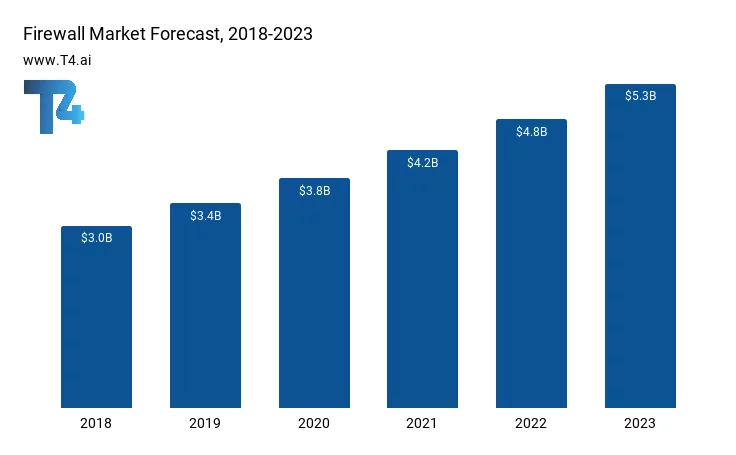
According to recent statistics, WordPress powers more than 40% of all websites on the internet, making it a prime target for cyber attacks. In fact, research indicates that WordPress websites are targeted by hackers over 90,000 times per minute. These attacks can result in significant damage to your website’s reputation, loss of sensitive data, and financial repercussions.
Fortunately, investing in a reliable WordPress firewall plugin can significantly enhance your website’s security posture and mitigate the risk of cyber attacks. These plugins work by monitoring incoming and outgoing traffic, identifying suspicious activity, and blocking malicious actors before they can harm your site.
A WordPress firewall serves as a robust security measure crafted to shield your WordPress website against a myriad of cyber threats, unauthorized access attempts, and malicious traffic. It functions by swiftly detecting and intercepting potential risks in real time, thereby permitting only genuine and safe traffic to navigate through your website’s digital infrastructure.
Types of Firewall:
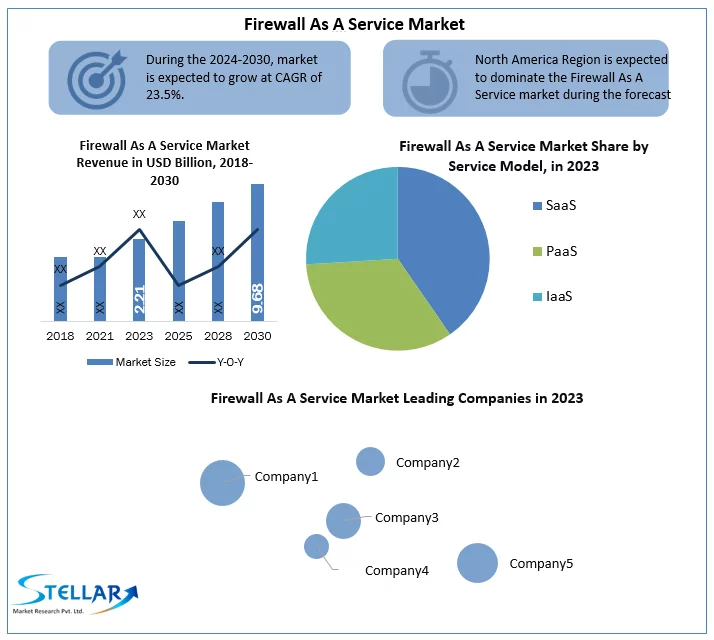
- Cloud-based Firewall: This operates on remote servers provided by security providers like Cloudflare. It blocks malicious requests before they reach your website, reducing server load and maintaining top-notch performance.
- DNS-level Firewall: This type blocks access to known malicious domains, preventing your WordPress site from connecting to harmful servers or websites.
- Plugin-based Firewall: Installed directly from the WordPress directory, these firewalls have a user-friendly interface, making it easy for beginners to configure settings quickly.
- Web Application Firewall (WAF): Specialized firewalls tailored to protect web applications by analyzing HTTP requests and responses to detect suspicious activities. Many top WordPress firewall plugins include WAF capabilities.
- Application-level Firewall: Unlike a dedicated WAF, this type can filter traffic for various applications, not just web-related ones, controlling access to email clients, FTP servers, or database management tools.
- Network-level Firewall: Operating at the network level, typically on hosting servers, these firewalls block traffic based on IP addresses, ports, or protocols, providing a foundational layer of protection for your hosting environment.
- Hardware Firewall: Physical devices are implemented at the server or hosting infrastructure level, and hardware firewalls filter traffic before reaching your server. Although highly effective, they are often used by larger organizations or hosting providers.
Reasons to Implement a Firewall for WordPress Sites:
- Enhanced Security: A firewall acts as a barrier between your website and potential threats, reducing the risk of security breaches, malware infections, and hacking attempts.
- Real-time Threat Detection: Firewalls continuously monitor incoming and outgoing traffic, promptly identifying and blocking suspicious activities before they can harm your site.
- Protection Against DDoS Attacks: Firewalls can mitigate Distributed Denial of Service (DDoS) attacks by filtering out malicious traffic and ensuring that the website remains accessible to legitimate users.
- Unauthorized Access Prevention: By monitoring and controlling access to your website’s backend, a firewall prevents unauthorized users from gaining entry and tampering with sensitive data or system files.
- Content Filtering: Some firewalls offer content filtering capabilities, allowing you to block access to certain websites, IP addresses, or types of content deemed inappropriate or harmful.
- Improved Performance: By reducing the load on your server caused by malicious traffic and spam requests, a firewall can help improve your website’s overall performance and load times.
- Compliance Requirements: Implementing a firewall can help you meet regulatory requirements and industry standards for data security, like the General Data Protection Regulation (GDPR) or the Payment Card Industry Data Security Standard (PCI DSS).
Top Firewall Security Plugins for WordPress:
1. Shield Security
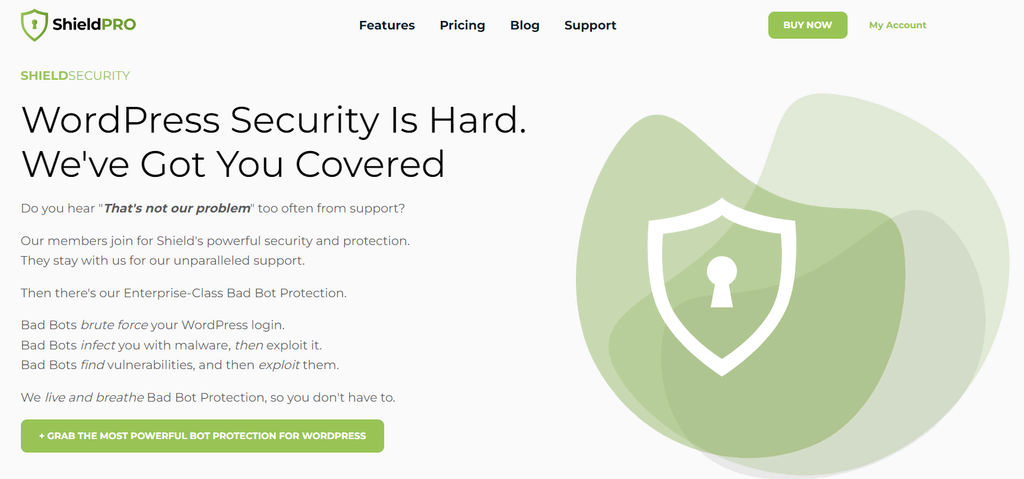
Shield Security is a robust WordPress firewall plugin known for its partnership with CrowdSec, an open-source security tool. This unique collaboration enhances Shield Security’s capabilities in identifying and blocking bad bots early, protecting websites from various threats. With a stellar rating of 4.9/5, it’s highly regarded for its effectiveness in safeguarding websites.
Key Features:
- CrowdSec Integration: Shield Security continuously updates its IP blocklists based on user reports, leveraging CrowdSec’s behavioral analysis and community-driven approach to detect and mitigate threats.
- Bad Bot Detection: The plugin excels in identifying and blocking malicious bots before they can cause harm or exploit vulnerabilities on your site.
- Traffic Rate Limiting: Shield Security mitigates the risk of DDoS attacks and server overload by restricting the volume of incoming requests from a single source.
- Login Security: It offers features like two-factor authentication and login attempt monitoring to minimize unauthorized access.
Drawbacks:
One common drawback is that Shield Security may occasionally block legitimate users and administrators, impacting user experience and satisfaction.
Pricing:
Shield Security follows a freemium model, with pro plans starting at $99/year for one site. The Starter plan offers features like IP blocklists, bot detection for custom user forms, and DDoS protection with traffic rate limiting.
2. AIOS

All-In-One Security (AIOS) is another popular WordPress security plugin with a rating of 4.8/5. It’s best known for its versatility and feature-rich offerings, providing comprehensive security solutions for websites.
Key Features:
- iFrame Protection: Prevents unauthorized copying of website content by other sites without permission, enhancing content security.
- Database Security: AIOS ensures the security of your website’s database, protecting sensitive information and preventing SQL injection attacks.
- Real-time Firewall Rules: Protects your site from known hackers, spam referrers, and malicious bots with constantly updated firewall rules.
- Login Activity Logging: Keeps track of user interactions and detects unusual login activities, enhancing overall security.
Drawbacks:
Despite its robust features, AIOS has faced scrutiny due to a recent data privacy violation, raising concerns about its security standards.
Pricing:
AIOS follows a freemium model, with pro plans starting at $70/year for two sites. The Premium Plugin offers additional features such as automatic malware scanning, country blocking, and forced logouts after a set period.
3. Security Ninja
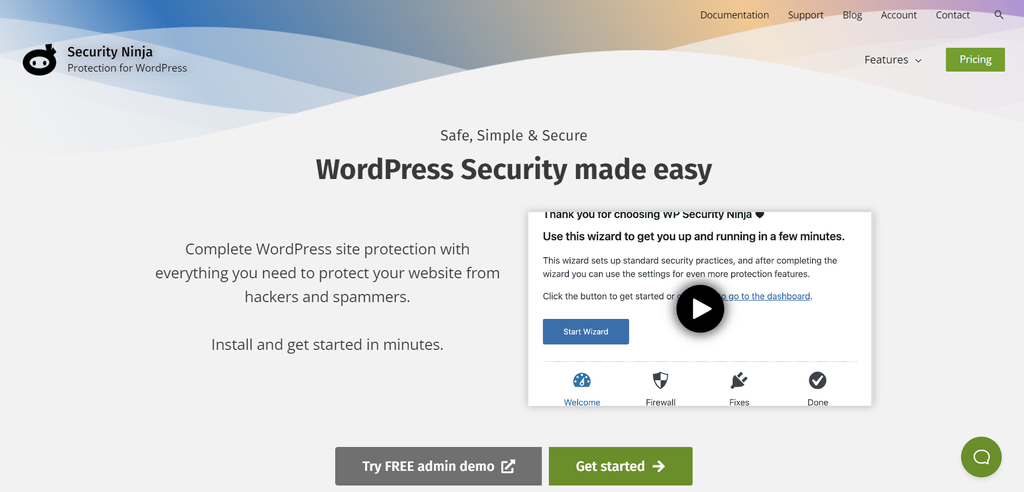
Security Ninja is a highly-rated WordPress firewall plugin with a rating of 4.8/5. It stands out for its ability to conduct over 50 security tests in a single click, making it ideal for users looking to quickly identify vulnerabilities in their websites. The plugin is best known for its feature that allows users to perform vulnerability scanning for themes and plugins with ease.
Key Features:
- Security Tests: Perform over 50 security tests to identify security holes and weaknesses in your site’s infrastructure.
- Auto Fixer: Security Ninja offers automated software that quickly repairs vulnerabilities for certain security tests, ensuring your site remains secure.
- Events Logger: It logs all events related to user activity, providing you with valuable insights into what’s happening on your site.
- Login Attempt Monitor: Receive alerts when multiple failed login attempts occur, helping prevent brute-force attacks and unauthorized access.
Pricing:
The freemium model of Security Ninja offers a basic version for free, with pro plans starting at $6.99/month for a single site. The premium version includes features like cloud-based firewall, WordPress login form protection, events logger, and spam IP blocking.
However, some users have reported that Security Ninja can slow down their WordPress site, particularly if there is a high volume of traffic.
4. BulletProof Security
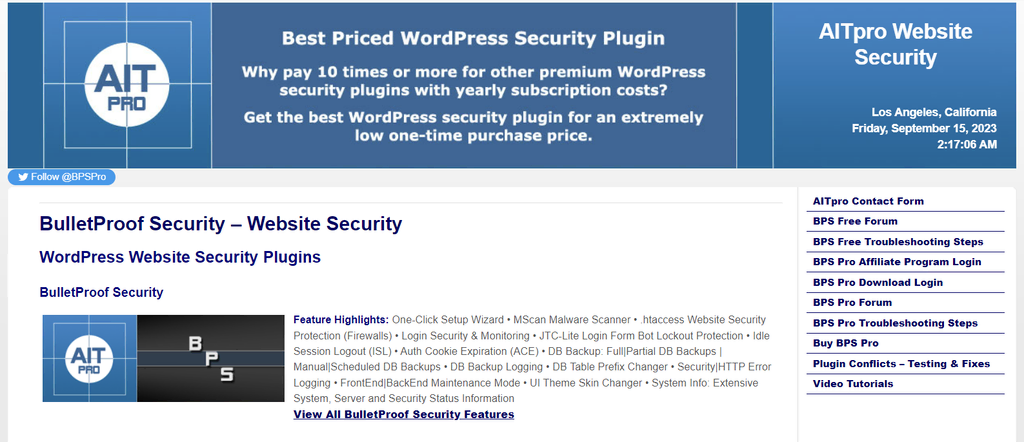
BulletProof Security is another popular WordPress firewall plugin with a rating of 4.8/5. It is best suited for users looking to secure an unlimited number of websites without paying recurring subscription fees.
Key Features:
- One-Click Setup Wizard: BulletProof Security offers an easy setup wizard to configure essential security settings quickly, making it accessible even for novice users.
- .htaccess Security: It protects your website using .htaccess files, adding security layers to your site’s root and wp-admin directory.
- Idle Session Logout: Easily set a maximum idle session time for users to minimize unauthorized access to your site.
- Maintenance Mode: Activate maintenance mode during site updates, displaying a user-friendly message to visitors.
Pricing:
BulletProof Security follows a freemium model, with the pro license available for a one-time payment of $69.95. This lifetime license safeguards your sites against modified files, malware, and brute force attacks, making it a cost-effective solution for long-term security needs.
5. Wordfence
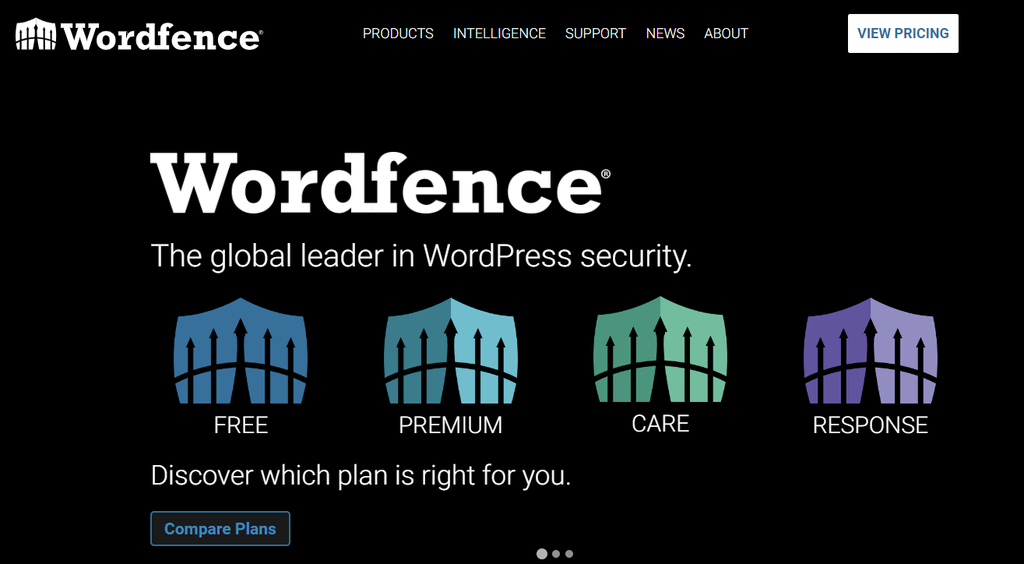
Wordfence is a highly-rated WordPress firewall plugin with a rating of 4.7/5. It excels in managing login security for multiple sites and provides comprehensive security features to protect your WordPress website from various threats.
Key Features:
- Wordfence Central: A user-friendly dashboard that allows you to track the security status of multiple WordPress websites from one centralized location.
- Security Scanner: Conducts regular scans to eliminate any files containing malicious code, ensuring a malware-free WordPress website.
- IP Blocklist: Wordfence firewall continuously updates to guard against emerging security threats and malicious IP addresses, providing robust protection.
- Traffic Monitoring: Allows you to track bot activity and monitor user visits in real-time to prevent hack attempts and unauthorized access to your site.
Pricing:
Wordfence follows a freemium model, with pro plans starting at $119/year for one WordPress installation. The premium version includes additional benefits such as real-time IP blocking, premium support, and country blocking.
Though, some users have reported that Wordfence can sometimes clash with other plugins or themes due to its thorough scanning and monitoring, which may slow down your WordPress site or cause errors.
6. iThemes Security
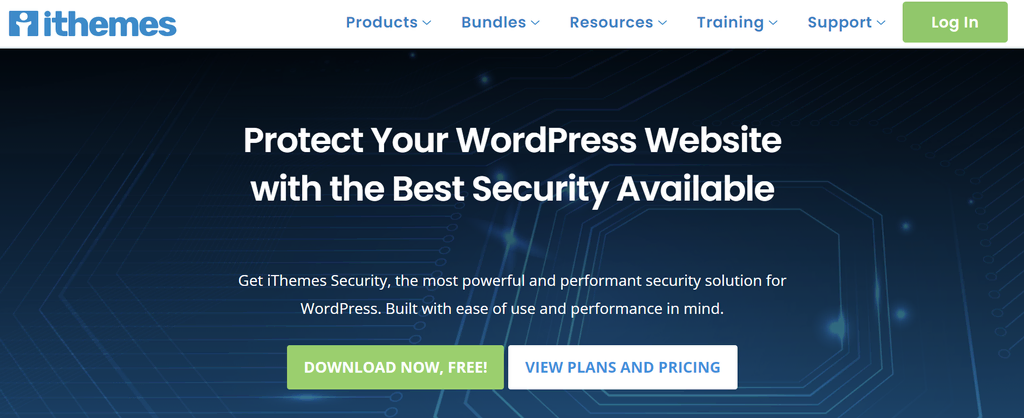
iThemes Security is another popular WordPress firewall plugin with a rating of 4.6/5. It is best known for its ability to configure firewall settings quickly, making it ideal for beginners.
Key Features:
- Two-Factor Authentication: Adds an additional layer of protection using various authentication methods, enhancing security for your WordPress site.
- File Change Detection: Provides instant alerts when suspicious file changes occur, allowing you to take immediate action against potential threats.
- Password-Less Logins: Delivers a seamless login experience for trusted users, allowing them to access their accounts without using a password.
- Security Site Templates: Offers pre-configured security settings based on your website’s type and needs, simplifying the setup process.
Pricing:
iThemes Security offers a freemium model, with pro plans starting at $99/year for one site. Paid plans include features such as password-less logins, WP-CLI integration, user activity logging, and more.
However, iThemes Security’s continuous monitoring may consume server resources, particularly on shared web servers, potentially leading to site crashes. To avoid this, it’s recommended that you use a managed WordPress hosting plan from reliable providers.
7. Sucuri
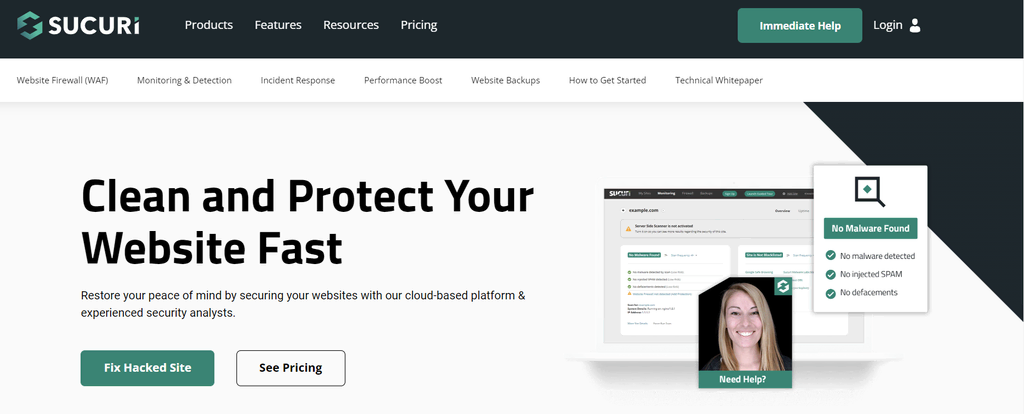
Sucuri is a website security tool compatible with various platforms, including WordPress, Magento, Drupal, and Joomla. It offers firewall protection across different site-building platforms, making it a versatile option for website security.
Key Features:
- Cloud-Based WAF: This type of firewall utilizes a cloud-based web application firewall to scan malicious traffic and safeguard your website from online threats.
- Advanced DDoS Mitigation: This provides advanced DDoS mitigation to ensure uninterrupted browsing experience for your visitors during large DDoS attacks.
- SSL Encryption: Implements SSL encryption to build trust with visitors and search engines by ensuring secure data transmission.
- Site Hardening: Bolsters your website’s defenses by patching vulnerabilities and minimizing risks through site hardening measures.
Pricing:
Sucuri offers a Basic Firewall plan starting at $9.99/month for one site, which includes features such as a cloud-based web application firewall, security auditing tool, virtual hardening, and advanced DDoS mitigation. Higher-tier plans offer additional features such as SSL certificate transfers for enhanced security.
8. Malcare
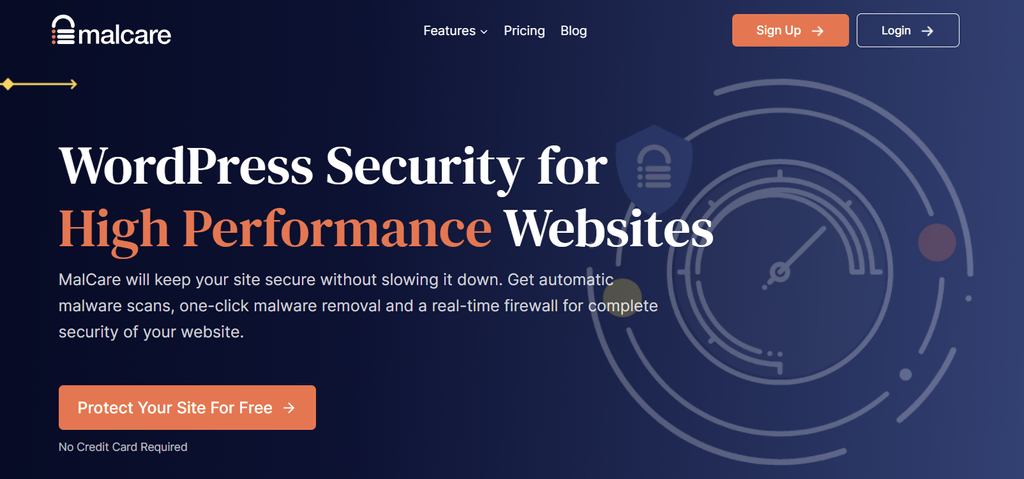
MalCare is a WordPress firewall plugin with a rating of 4.1/5, renowned for its deep malware scanning and removal capabilities. It is ideal for web developers and agencies, offering a premium white-label solution to keep clients’ data secure.
Key Features:
- Instant Malware Removal: With just one click, MalCare removes malware from your website, saving you time and effort.
- AI-Powered Firewall: Beyond blocking threats, MalCare’s firewall employs machine learning to predict and prevent future attacks, enhancing security.
- Cloud-Based Malware Scanner: MalCare monitors malicious files without slowing down your WordPress website, thanks to its cloud-based protection.
- Login Protection: Prevent unwanted access with features like two-factor authentication and CAPTCHA-based logins, enhancing site security.
Pricing:
MalCare follows a freemium model, with pro plans starting at $99/year for one site. Users can opt for the Plus plan at $149/year for full protection and website backups.
However, some website owners feel that MalCare’s free version lacks comprehensive firewall protection, requiring additional payment for comprehensive security reports.
9. Jetpack
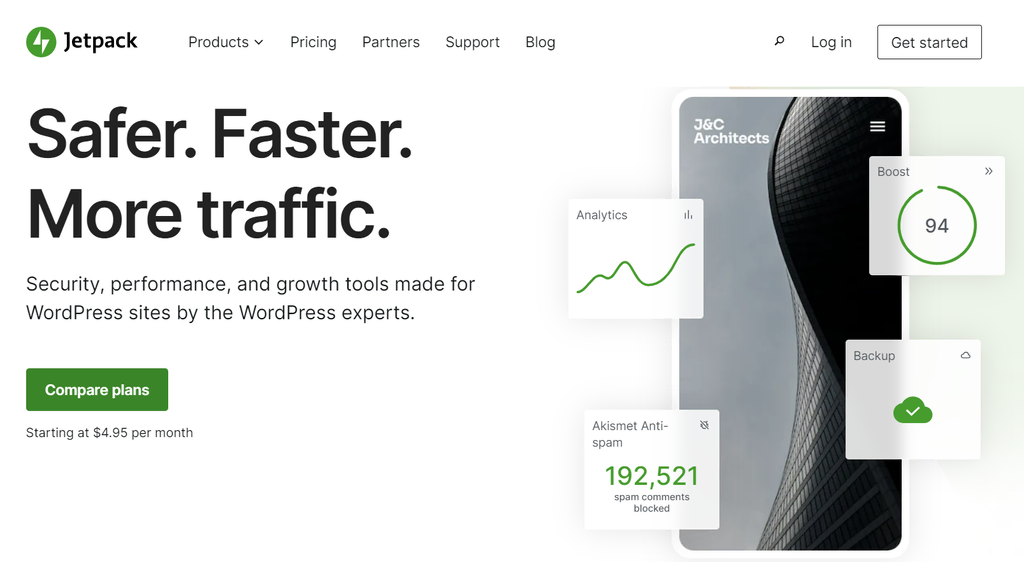
Jetpack is a multifunctional WordPress plugin with a rating of 3.9/5, and it is best known for maintaining stable site performance.
Key Features:
- Brute Force Protection: Jetpack shields your website against login attempts from users with malicious intent, enhancing security.
- VaultPress Backup: Save your progress in real-time to avoid data loss, with the ability to restore backups instantly in case of errors.
- Jetpack Scan: Automated scanning and one-click fixes make removing malicious software quick and easy, ensuring a malware-free website.
- Akismet Anti-Spam: Filter out spam comments and ensure a cleaner, more streamlined comment section on your website.
Pricing:
Jetpack offers a freemium model, with security products available as add-ons starting at $4.95/month each. Alternatively, users can purchase the Security bundle for $9.95/month, providing access to real-time backups, automated malware scanning, and more.
However, there is no free version for the security features, which may be a drawback for users on a tight budget.
Factors to Consider Before Choosing a Firewall Plugin:
- Enhanced Security: A firewall acts as a barrier between your website and potential threats, reducing the risk of security breaches, malware infections, and hacking attempts.
- Real-time Threat Detection: Firewalls continuously monitor incoming and outgoing traffic, promptly identifying and blocking suspicious activities before they cause harm your site.
- Protection Against DDoS Attacks: Firewalls can mitigate Distributed Denial of Service (DDoS) attacks by filtering out malicious traffic and ensuring that the website remains accessible to legitimate users.
- Unauthorized Access Prevention: By monitoring and controlling access to your website’s backend, a firewall prevents unauthorized users from gaining entry and tampering with sensitive data or system files.
- Content Filtering: Some firewalls offer content filtering capabilities, allowing you to block access to specific websites, IP addresses, or types of content deemed inappropriate or harmful.
- Improved Performance: By reducing the load on your server caused by malicious traffic and spam requests, a firewall can help improve your website’s overall performance and load times.
- Compliance Requirements: Implementing a firewall can help you meet regulatory requirements and industry standards for data security, such as the General Data Protection Regulation (GDPR) or the Payment Card Industry Data Security Standard (PCI DSS).
Conclusion:
Choosing the right WordPress firewall is crucial for ensuring the long-term success of your website. It provides a safe environment and flawless browsing experience for visitors.
Some of the best WordPress firewall plugins for various security needs include Shield Security, All-In-One Security (AIOS), Security Ninja, Wordfence, and Cloudflare. Before making a decision, carefully assess your website’s unique requirements and budget constraints.
If you have further questions about WordPress firewall or other security best practices, feel free to leave a comment below.
FAQs on Firewall Plugins:
Can I use multiple firewall plugins on my WordPress site?
While it’s technically possible to install multiple firewall plugins on your WordPress site, it’s generally not recommended. Using multiple firewall plugins can lead to conflicts, performance issues, and unexpected behavior. It’s best to choose one reputable firewall plugin that meets your security requirements and stick with it to avoid complications.
Do firewall plugins slow down my WordPress site?
In most cases, firewall plugins have minimal impact on the performance of your WordPress site. However, some firewall plugins may slightly increase server load due to the additional security checks and monitoring processes. It’s essential to choose a lightweight and well-optimized firewall plugin to ensure optimal performance without sacrificing security.



